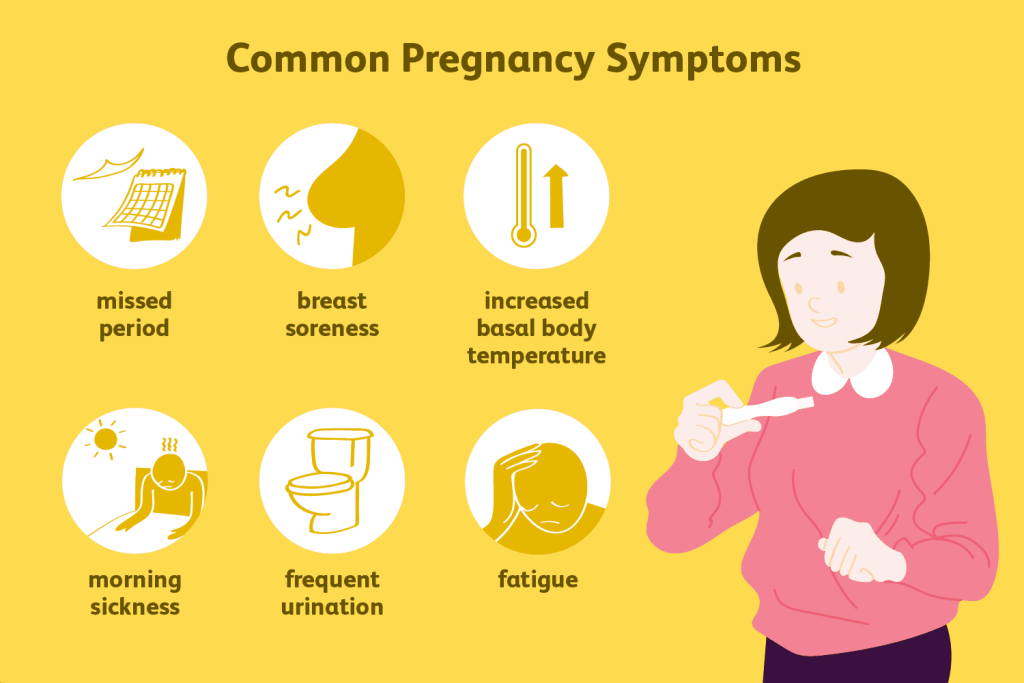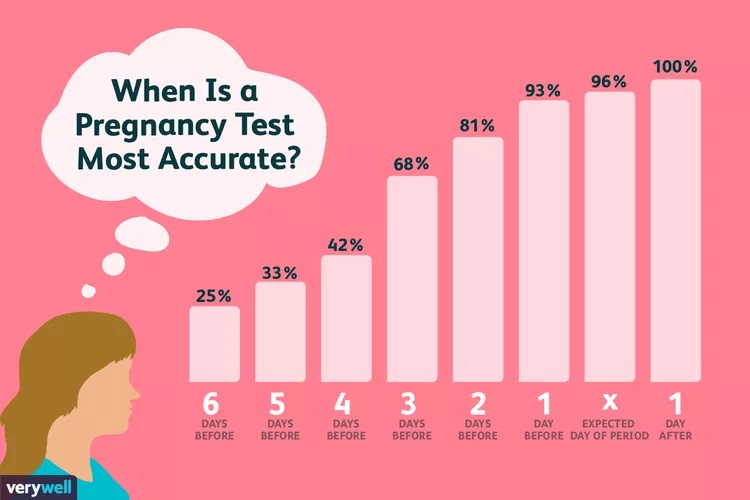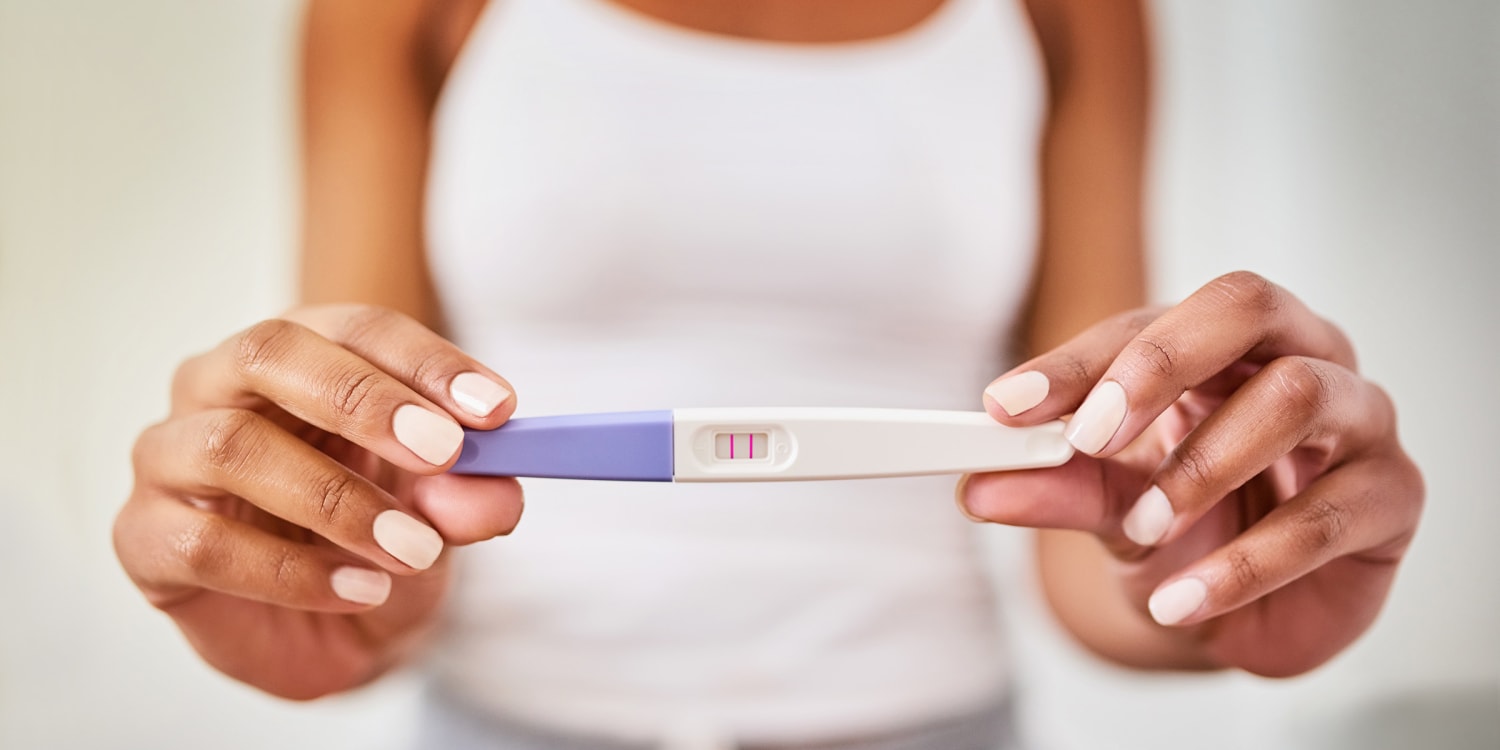Common Early Signs of Pregnancy

Missed Period as a Key Indicator
One of the earliest signs indicating that I might be pregnant is a missed period. If I am in my reproductive years and realize that my menstrual cycle hasn’t started on time, it prompts me to consider the possibility of pregnancy seriously.
However, I’ve learned that not everyone has a regular cycle. Sometimes factors like stress, weight changes, or hormonal imbalances can lead to missed periods, so while it’s an important sign, it’s also worth considering other possibilities.
Physical Changes You May Notice
As I navigate these early days, I keep an eye on any physical changes in my body. Tender and swollen breasts often stand out, as hormonal changes can cause them to feel more sensitive than usual. I might also notice an increase in breast size or darkening of the areolas. These changes can happen soon after conception due to increased hormones flowing through my body.
Nausea and Fatigue
Nausea is another prevalent symptom I may experience, frequently referred to as morning sickness, although it can occur at any time of the day. This overwhelming nausea can start as early as two weeks into the pregnancy, making it a significant clue. Alongside this, fatigue often becomes a familiar feeling. High levels of progesterone coursing through my system can leave me feeling unusually tired, signaling that something is different.
Less Common Symptoms to Observe
Implantation Bleeding and Spotting
In the early days, I should also be aware of less common symptoms like spotting, known as implantation bleeding. This can happen about a week to two weeks after conception when the fertilized egg attaches to the uterine lining. Implantation bleeding often appears as light spotting and may last a few hours, differing from a typical menstrual period. It can easily be mistaken for a light period if I’m not vigilant about my body’s signals.
Changes in Taste and Appetite
I might also encounter unusual cravings, aversions to certain foods, or an unexpected metallic taste in my mouth. Hormonal fluctuations may alter my sense of taste, leading me to crave specific foods or turn away from others I usually enjoy. If I find myself feeling slightly queasy about particular odors or textures, it’s likely a product of my shifting hormones.
Mood Swings and Emotional Changes
The emotional turbulence that comes with early pregnancy can be quite pronounced. I might experience shifts in my mood, ranging from happiness to irritability, all fueled by the hormonal changes occurring within my body. It’s essential to recognize that these heightened emotions are completely normal, but if they become overwhelming, reaching out for support is critical.
When to Take a Pregnancy Test

Early Testing Recommendations
After noticing these potential signs, I may consider taking a pregnancy test. While it’s often suggested to wait until I’ve missed my period, if I feel convinced about my symptoms, I can take a test as soon as one week after suspected conception.
However, I should know that some tests now claim to detect pregnancy even before a missed period, but waiting might provide me with a more accurate result.
Confirming Pregnancy Through Healthcare
If my home pregnancy test returns positive, my next step should be to visit a healthcare provider. They can conduct a blood test, which can confirm pregnancy earlier and more accurately. This visit is also an excellent opportunity for me to ask questions and receive information on what the next steps should be.
Next Steps After a Positive Test

Scheduling Your First Doctor Appointment
Upon receiving a positive test result, it becomes crucial to schedule my first doctor’s appointment. This early prenatal visit is significant as it helps establish my health needs during the pregnancy. During this appointment, I’ll likely discuss any lifestyle changes I need to consider and receive valuable information regarding my health and the development of the baby.
Taking Folic Acid and Prenatal Vitamins
As a precaution, I should also begin taking folic acid and prenatal vitamins right away. Folic acid is essential for the baby’s neural development, and ensuring I have sufficient vitamins is key for both my health and the health of the baby.
FAQs
How do I know if I am pregnant in the early days?
In the early days of pregnancy, paying attention to symptoms such as a missed period, changes in breast tenderness, nausea, and fatigue can help me gather clues about whether I might be pregnant.
However, the only definitive way to confirm this is through a pregnancy test.
What are the most common early signs of pregnancy?
The most common early signs include a missed period, tender and swollen breasts, nausea, increased urination, and fatigue. Both the presence and the intensity of these symptoms can vary significantly from person to person.
When should I take a pregnancy test for accurate results?
To obtain the most reliable results, it’s best to take a test at least one week after a missed period. Though some tests offer early detection, taking the test too soon can lead to false negatives.
Can I experience pregnancy symptoms before a missed period?
Yes, I can experience various symptoms even before missing my period. Some individuals report feeling different within a week of conception, observing signs such as nausea and fatigue ahead of their expected cycle. However, these symptoms can also be attributed to premenstrual syndrome (PMS) or other factors, making it essential to follow up with a test for confirmation.
Reference
- Am I Pregnant? Early Symptoms of Pregnancy & When To Test
- Symptoms of pregnancy: What happens first – Mayo Clinic
- Early signs of pregnancy
